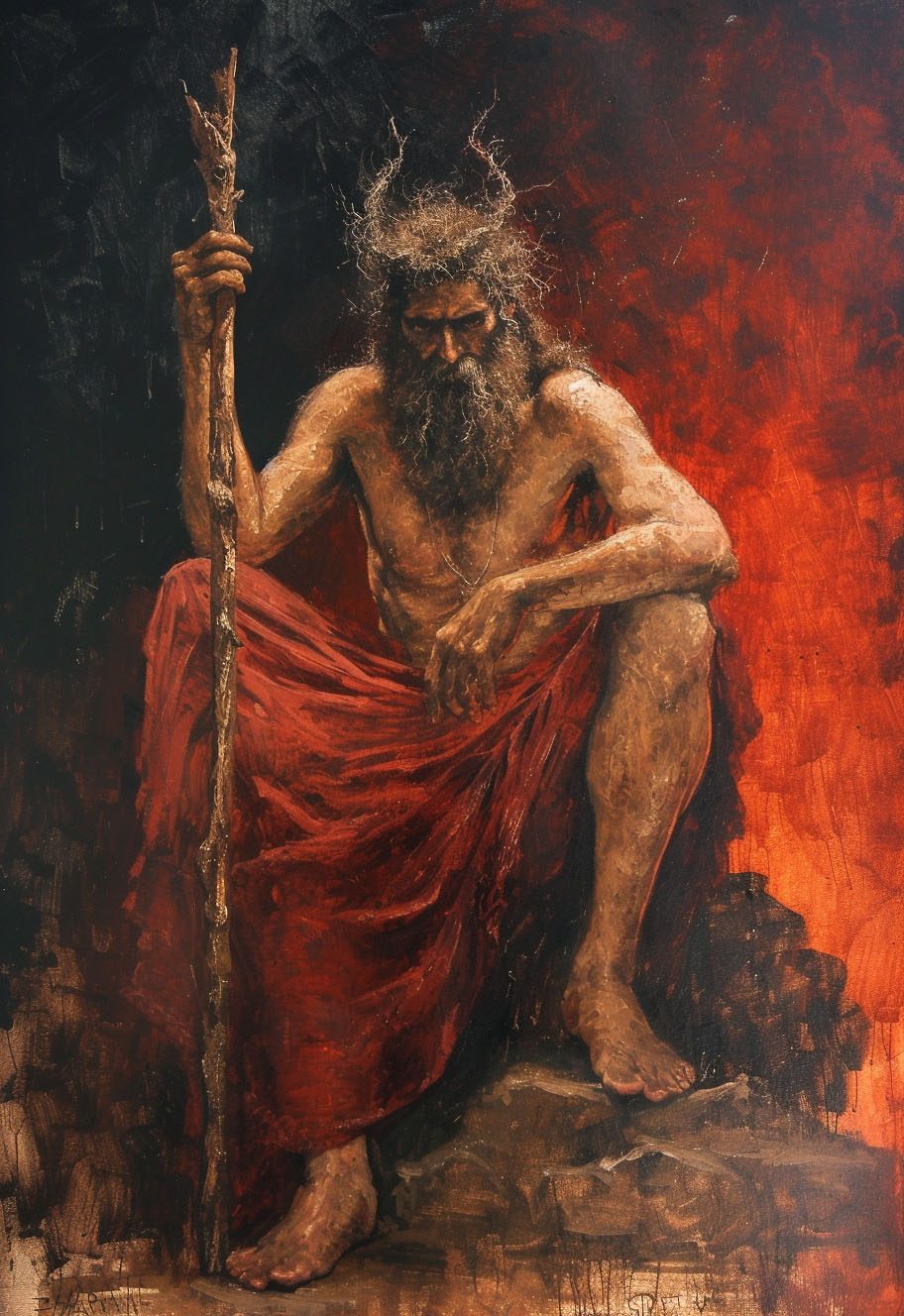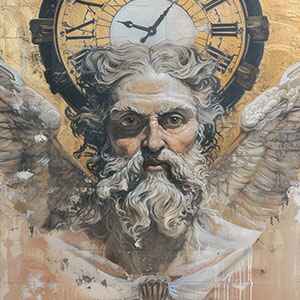Hades
In Greek mythology, Hades is the god of the underworld and the ruler of the dead. He is one of the three brothers who divide the cosmos among themselves, with Zeus ruling the heavens, Poseidon governing the seas, and Hades presiding over the underworld.
Parents: Cronus & Rhea
Siblings: Poseidon, Demeter, Hestia, Hera, Zeus
Consort: Persephone
Children: NA

Division of the Cosmos: Hades is one of the children of Cronus and Rhea, making him a sibling to Zeus and Poseidon. After the defeat of the Titans, Zeus, Poseidon, and Hades drew lots to determine their realms. Hades received the underworld.
Ruler of the Underworld: Hades is responsible for governing the realm of the dead, commonly referred to as the Underworld or Hades. This realm includes the land of the deceased in various domains, such as the Fields of Asphodel, Elysium, and Tartarus.
Attributes and Symbols: Hades is often depicted with a dark beard and a stern countenance. His symbols include the helm of darkness (invisibility cap), the bident (a two-pronged fork), and the three-headed dog Cerberus, who guards the entrance to the Underworld.
Abduction of Persephone: One of the most well-known myths involving Hades is the abduction of Persephone, the daughter of Demeter. Hades kidnapped Persephone and brought her to the Underworld, leading to Demeter's grief and the changing seasons. Persephone eventually became the queen of the Underworld.
Epithets: Hades is often referred to by epithets such as "Pluto," meaning "wealth" or "the rich one," emphasising the treasures found beneath the earth's surface.
Fair Judge of the Dead: Hades is portrayed as a fair and just judge of the dead. Souls are judged upon entering the Underworld, and they are assigned to different afterlife realms based on their deeds in life.
Association with Wealth: While Hades is primarily associated with the dead and the afterlife, his connection to the wealth of the earth, such as precious metals and gems, is also acknowledged.
Underworld River Styx: The River Styx is a prominent feature in the Underworld, and souls must cross it to enter Hades' realm. The river is also associated with oaths and promises, and gods swore binding oaths by the River Styx.
Worship and Cults: Hades did not have as prominent a cult following as some other Olympian gods, as much of his worship was associated with funerary rites and the fear of death. However, he was occasionally invoked in certain rituals.
Role in Heroic Myths: Hades appears in various heroic myths, interacting with heroes like Orpheus, Heracles (Hercules), and others who ventured into the Underworld.
Cultural Perception: In later cultural contexts, including Roman mythology, Hades' name became synonymous with the Underworld itself.
Hades plays a crucial role in the Greek conception of the afterlife and the balance between life and death. Despite his association with the dead, Hades is not portrayed as malevolent; rather, he is depicted as a god fulfilling his role in the divine order of the cosmos.
Immediate Family
Quick Facts
- He is the oldest brother.
- His youngest brother saved him.
- He got his kingdom after the Titanomachy.
- He has a pet.
- He has a wife, Persephone.
- He and his wife are equals.
- His kingdom is vast and diverse.
- He likes peace and balance.
Further Reading
Art &
Architecture
Ancient Greek art and architecture, with its harmonious proportions and timeless elegance, continue to inspire awe and admiration millennia later.
Discover
Greek Mythology & Mythical Characters
Greek mythology, a rich tapestry of gods, heroes, and mythical creatures, captivates the imagination with its tales of love, betrayal, and epic adventures that delve into the depths of the human psyche.
Discover
Ancient Greek History
Ancient Greek history, marked by remarkable achievements in democracy, philosophy, and warfare, shaped the foundation of Western civilization, leaving an indelible legacy of innovation and cultural influence that continues to resonate to this day.
Discover
Ancient Greek Olympics
The ancient Greek Olympics, held in Olympia every four years, celebrated athleticism, unity, and cultural pride, serving as a testament to the enduring spirit of competition and excellence that transcends time and borders.
Discover
Ancient Greek Wars
Ancient Greek wars, such as the Persian Wars and the Peloponnesian War, were pivotal conflicts that shaped the course of history, highlighting the struggle for power, independence, and the clash of civilizations in the ancient Mediterranean world.
Discover
Ancient Greek Culture and Society
Ancient Greek culture and society, characterized by its emphasis on art, philosophy, and civic engagement, fostered a vibrant intellectual and social landscape where innovation flourished, democracy thrived, and the pursuit of knowledge and excellence was celebrated as fundamental values of civilized life.
Discover

